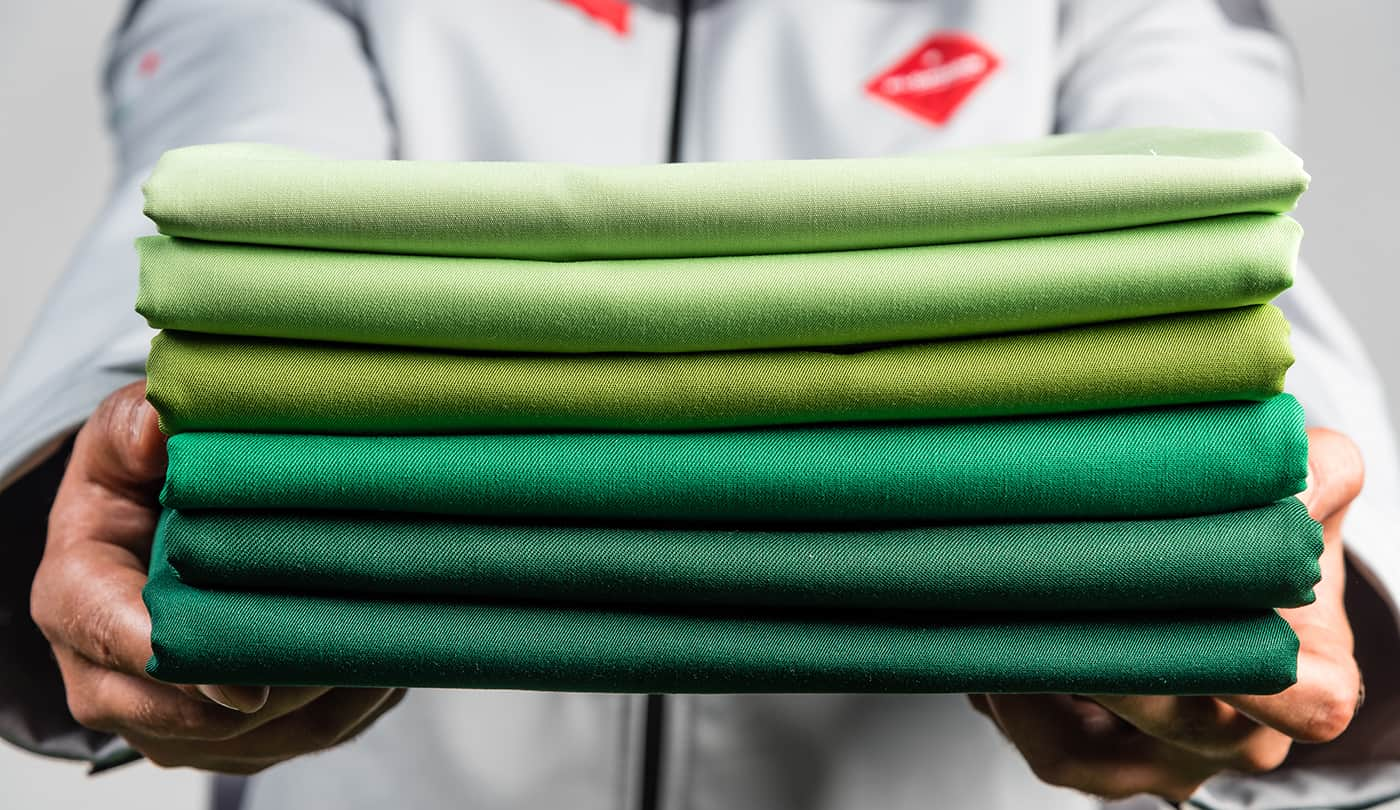Trending
3 years ago

When it comes to environmental footprint and sustainability in the textile sector, it’s not just a matter of choosing sustainable fibres; there are a lot of other aspects to be considered.
There is an environmental sustainability aspect, which concerns the production process, the substances used in the manufacturing process, the water and energy consumed, the land used, the environmental footprint, and, obviously, the sourcing of the raw materials.
At Klopman, we aim to reduce our impact on the environment every day, with MORE AND MORE EFFICIENT PRODUCTION systems and by constantly working towards minimising toxic substances, finding alternatives for existing raw materials, reducing waste, reducing energy use and employing renewable energies. PRODUCTION EFFICIENCY means LESS WASTE OF RESOURCES.
And we’re more committed than ever to PRODUCING FABRICS THAT LAST.
Designing and producing clothes of higher quality is the first and most important way to be sustainable. Because a garment can be worn that can be worn more times means less production and less consumption.
MORE DURABLE FABRICS mean LESS PRODUCTION means ENVIRONMENTALLY FRIENDLY FABRICS
In addition, there’s a social sustainability aspect, which means: who produces it? How are they treated and paid? What is the impact on local communities? Are the fabrics produced in socially responsible workplaces? All of this can be guaranteed through third-party certifications which make sure the manufacturer is compliant with sustainability and quality standards.
All of which means it is important to make an informed decision when choosing fabrics.
Usually, the most sustainable fabrics employ a closed-loop or circular system, recycling waste and putting it back into production. Moreover, the regenerative, organic and recycled versions have a lower impact than their conventional counterparts.
Fabrics nowadays must not only be durable, but also ethical, and be manufactured by a reliable supplier.
We are strongly aware of the importance of promoting the circular economy and sustainability in the textile sector. We have therefore created a very innovative green range – made of recycled polyester from PET plastic bottles, TENCEL™ Lyocell fibre derived from wood, organic cotton or cotton certified according to Fairtrade or Better Cotton standards – to improve the conditions of producers in developing countries.